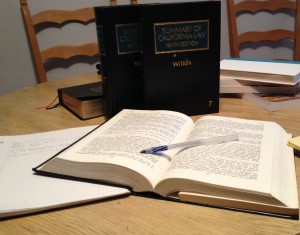Defenses to Claims Involving Negligence Per Se
When plaintiffs successfully prove violation of an applicable statute and the requisite causation to rely upon negligence per se, a presumption arises that the defendant has breached the requisite duty of care. However, this does not mean the defendant automatically loses on these elements. The defendant may still rebut the presumption.
Rebutting a presumption requires proving, to the requisite evidentiary standard, that the presumption is untrue. This requires evidence of:
A Legally Recognized “Excuse.” Proving “excuse” requires the defendant to establish that (s)he did what a reasonable, prudent person who wished to comply with applicable laws would have done under similar circumstances. Since a “law abiding person” is part of the test, a defendant must do more than simply establish reasonableness. The actions must have been reasonable, under the circumstances, for someone who generally wants to (and does) comply with the law. Excuses can be things beyond a person’s own control–such as a natural disaster, an act of God, or other people’s illegal or wrongful acts–circumstances which might cause a normally law-abiding person to behave in a non-legal or non-permitted manner.
A Legally Recognized Defense. In some circumstances, legal defenses like consent, the plaintiff’s cooperation in the illegal act, and contributory negligence may also relieve the defendant of some or all of the legal liability for negligence–including cases in which negligence per se applies. Defenses are generally fact-specific and can be highly technical. Defendants should consult an attorney to learn which, if any, legal defenses might apply in the relevant case.
Special Defense for Children. In appropriate cases, minor children may rebut the presumption created by negligence per se by establishing (to the legally recognized standard) that the minor child used the degree of care expected of a reasonable minor of the same maturity, capacity, and intelligence of the defendant minor. However, this defense generally does not apply in cases where the minor was involved in “adult activities” such as operating a motor vehicle.
Delay could damage your claims and legal rights.
***
DISCLAIMER: This article is intended for informational purposes only, does not constitute legal advice to any person or entity, and does not create an attorney-client relationship with any person or entity. Negligence is a complex legal topic, and no single article can provide complete or comprehensive coverage or information about this or any other legal topic or issue. Your personal liability may differ, based on your individual facts and circumstances. If you believe you have a legal claim or issue, or wish to know more about your individual rights, consult an experienced attorney without delay.















